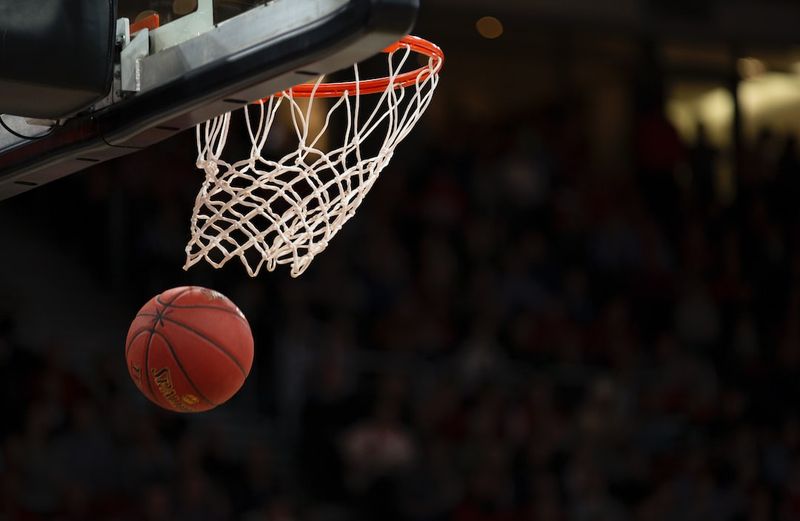Football Player Rakeim Ashford Injured: Examining the Consequences of Late Hits in the Sport
The Incident and its Implications
In a recent football match, Rakeim Ashford, a talented player from the local team, suffered a severe injury after a late hit on the field. The incident has sparked debate and raised questions about the current rules and practices in football, as well as the responsibility of players and coaches in preventing such occurrences. The incident has also brought to light the physical and ethical concerns surrounding late hits and their potential long-term consequences.
Understanding Late Hits
A late hit can be defined as a tackle or a block made by a defensive player against an offensive player after they have released the ball or are no longer an active participant in the current play. Late hits often occur due to the highly competitive and fast-paced nature of football, where split-second decisions are made under immense pressure.
However, the consequences of late hits can be severe. Players can experience severe injuries ranging from concussions to broken bones, which can have long-lasting effects on their careers and overall quality of life. Additionally, the presence of late hits on the field deters from the fundamental principles of fairness and sportsmanship that lie at the heart of athletic competition.
The Need for Player Safety
The well-being of the athletes should always be a primary concern in any sport. Football, being a physically intense and contact-oriented game, requires strict rules and regulations to ensure player safety. While safety measures have improved over the years, incidents like the one involving Rakeim Ashford highlight the need for continuous refinement and stricter enforcement.
Responsibility of Players and Coaches
Both players and coaches must recognize their responsibility in preventing late hits on the field. Players should be trained and coached to exhibit exceptional sportsmanship, emphasizing the need to respect opponents and avoid unnecessary aggression. Coaches should prioritize teaching proper tackling techniques and reinforce the importance of fair play and respect for the rules.
The Role of Officials and Rulemakers
Officiating crews and the governing bodies of football must also play an active role in addressing the issue of late hits. Stricter penalties for late hits, including fines and suspensions, can deter players from engaging in such dangerous behaviors. Moreover, rulemakers should continuously evaluate the existing regulations and consider the incorporation of stricter guidelines focused on player safety.
The Philosophical Debate
The issue of late hits in football raises broader philosophical questions about the nature of competitive sports. While the premise of football allows for both physicality and aggressiveness, where do we draw the line between fair play and disregard for an opponent’s well-being? Is it sufficient to claim that late hits are part of the game, or should we demand a fundamental change in the way the sport is played and overseen?
Redefining “Toughness”
One argument often heard in defense of late hits is the notion of toughness and the idea that physicality is an essential element of the sport. However, toughness and physicality should not be synonymous with endangering the health and safety of players. Redefining what it means to be tough in football can be a step towards evolving the sport into a safer and more responsible activity.
Balancing Tradition and Progress
The debate over late hits in football highlights the conflict between tradition and progress. While football has deep historical roots and a loyal fan base that appreciates its rough nature, the sport cannot afford to ignore the long-term consequences of its practices. Football must strike a delicate balance by preserving its essence while adapting to contemporary expectations regarding player safety and sportsmanship.
Editorial: Making Football Safer
Football has made significant progress in recent years in terms of player safety, but the incident involving Rakeim Ashford serves as a reminder that there is still work to be done. The governing bodies of the sport, along with players, coaches, and officials, must collaborate to create an environment that prioritizes players’ well-being without compromising the essence of the game.
Stricter Enforcement and Penalties
Fines and suspensions for players who engage in late hits can act as powerful deterrents. By imposing harsh consequences on those who disregard the safety of others, the sport can send a clear message that such behavior will not be tolerated. Officials should also be empowered to swiftly penalize late hits during games, ensuring a consistent and strict approach to enforcement.
Education and Training
Investing in education and training programs can help address the issue of late hits at its root. Coaches should not only focus on technical skills but also emphasize the importance of sportsmanship, fair play, and respect for opponents. Training sessions should prioritize proper tackling techniques and promote awareness of player safety as a shared responsibility.
Continuous Improvement of Safety Measures
The development and implementation of improved safety measures should be an ongoing priority for the football community. Technological advancements, such as better protective equipment and enhanced medical protocols, should be embraced to minimize the risk of serious injuries. Regular evaluations of rules and regulations should be conducted to ensure they align with contemporary understandings of player safety.
Conclusion: Striking a Balance
The incident involving Rakeim Ashford has shed light on the issue of late hits in football and the need for a comprehensive approach towards player safety. Balancing the physicality and competitiveness of the sport with the well-being of its participants is a challenging but necessary task.
Football must continue to evolve, adapt, and prioritize the safety of its players. Only through collaborative efforts between officials, rulemakers, coaches, and players can the sport maintain its appeal while protecting those who participate in it. As we move forward, we must remember that the true essence of sports lies in the pursuit of excellence, camaraderie, and fair play, rather than in recklessness that puts lives and careers in danger.

<< photo by Dave Adamson >>
The image is for illustrative purposes only and does not depict the actual situation.
You might want to read !
- A Controversial Commotion: Unraveling the Arrest of Ruby Franke, the 8 Passengers Family Vlogger
- 911 Service Restored in Omaha Metro Area: A Vital Lifeline Restored
- The Battle for Broadcast: Spectrum-Disney Dispute Leads to ESPN Blackout
- Late Hit on NC State’s Rakeim Ashford Sends Shockwaves through Collegiate Football
- Exploring the Greatest Week 1 Performances in Georgia Football History
- “Betting on the Battle: Analyzing the Braves vs. Dodgers Faceoff – September 1”
- A Sudden Storm Halts ASU Football Match: Assessing the Impact of Weather Delays
- Three Key Factors in N.C. State Football’s Impressive Season Opener Victory
- Three Insights from N.C. State Football’s Triumphant Season Opener




